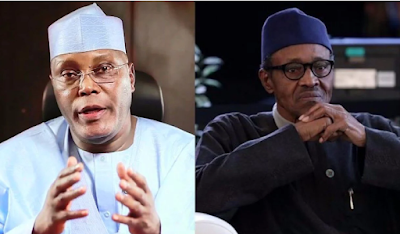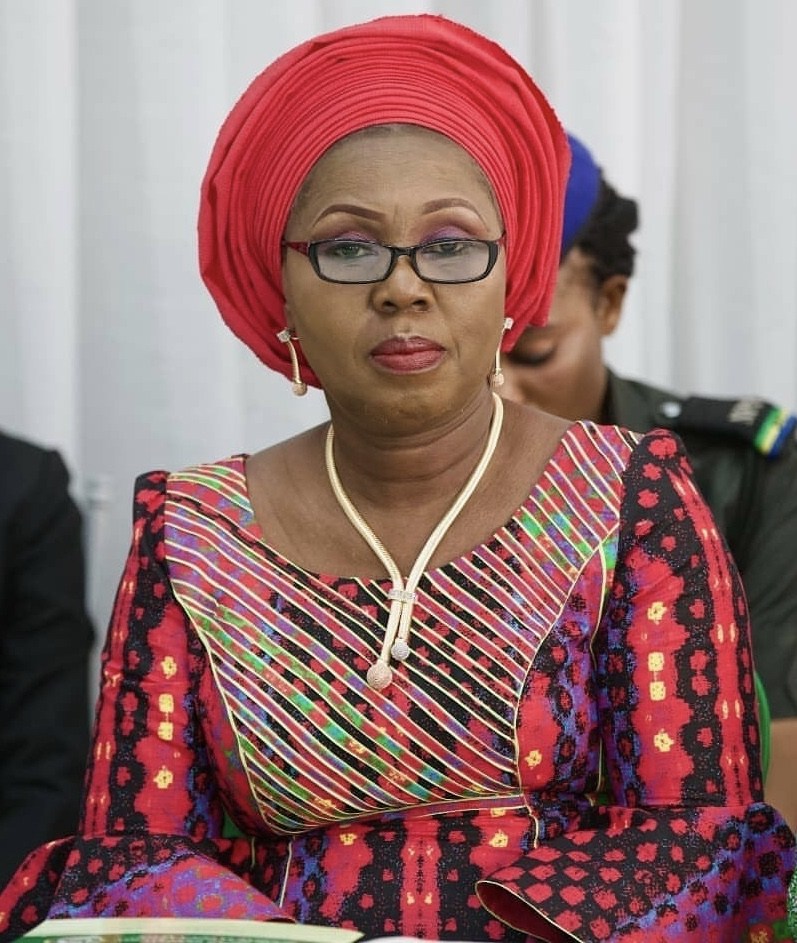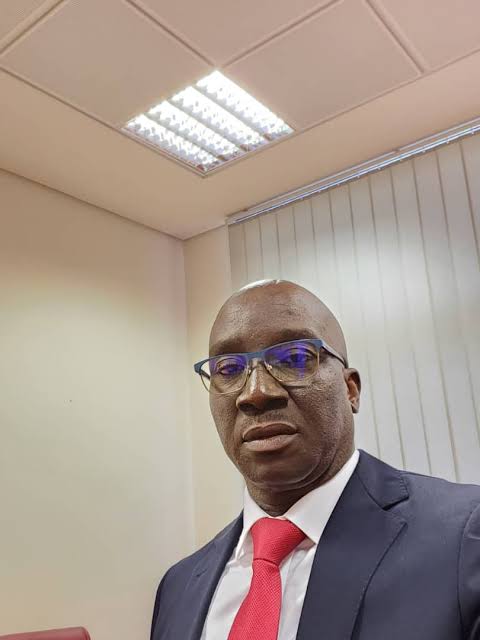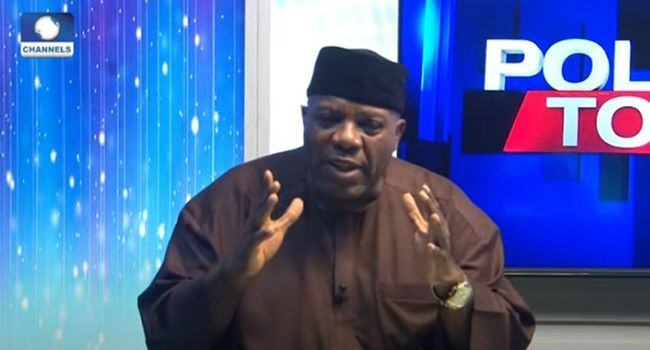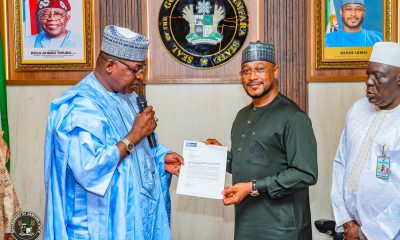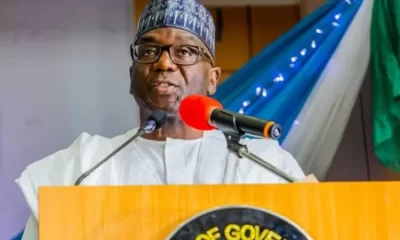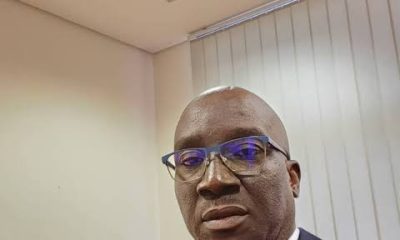Betty Akeredolu, widow of the late Rotimi Akeredolu, former governor of Ondo, has been criticised for comparing the US presidential election to Nigeria’s 2023 general election.
In a post on X on Wednesday, Betty juxtaposed the period it took to count and announce winners in both polls.
She has also been berated for calling Nigeria a zoo while responding to critics of her posts on the elections.
“When dishonesty is prioritised, simple things become difficult,” she said of Nigeria’s election.
“2023 Nigerian Presidential Election: Total Votes Cast: 25 million, Counting Duration: 5 days. 2024 U.S Presidential Election: Total Votes Cast: 155 million. Counting Duration: Approx. 10 hours.”
In another post, she said, “I made an honest but harmless observation on Nigerian and US presidential elections. Twitter is now on fire. Truth hurts and hurts with tribal colouration”.
“If the 2023 election presidential benefitted you as an individual or group, was that the best Nigeria could offer? Alas, they turned it into a tribal war of words. Nigeria is irredeemable! So sad,” she added.
“Very bitter indeed! Who will rescue Nigeria? What a zoo country!”
One Adegoke Adebisi said counting of votes continues in the US despite the announcement of Donald Trump as president-elect.
“This is not factual. The election was determined in 10 hours but counting continued till Friday, but results were posted live,” Adebisi said in response to Betty’s post.
“Grandma doesn’t even know what electoral college is, she thinks they count each ballot in the US election to declare Trump. You don’t even have the moral justification to criticise a system ur husband benefited from,” another post reads.
Here are a few more posts.
https://twitter.com/drdebodun/status/1856744000608236008?ref_src=twsrc%5Etfw%7Ctwcamp%5Etweetembed%7Ctwterm%5E1856744000608236008%7Ctwgr%5E610290c57da8066b2fca89158d8fe9ca93d32190%7Ctwcon%5Es1_&ref_url=https%3A%2F%2Fwww.thecable.ng%2Fsame-country-that-made-you-outrage-as-betty-akeredolu-calls-nigeria-a-zoo%2F
https://twitter.com/Montero1016/status/1856742131454431616?ref_src=twsrc%5Etfw%7Ctwcamp%5Etweetembed%7Ctwterm%5E1856742131454431616%7Ctwgr%5E610290c57da8066b2fca89158d8fe9ca93d32190%7Ctwcon%5Es1_&ref_url=https%3A%2F%2Fwww.thecable.ng%2Fsame-country-that-made-you-outrage-as-betty-akeredolu-calls-nigeria-a-zoo%2F
https://twitter.com/Olalekanakogun/status/1856732313867989117?ref_src=twsrc%5Etfw%7Ctwcamp%5Etweetembed%7Ctwterm%5E1856732313867989117%7Ctwgr%5E610290c57da8066b2fca89158d8fe9ca93d32190%7Ctwcon%5Es1_&ref_url=https%3A%2F%2Fwww.thecable.ng%2Fsame-country-that-made-you-outrage-as-betty-akeredolu-calls-nigeria-a-zoo%2F
https://twitter.com/bigmorsh/status/1856955340027265067?ref_src=twsrc%5Etfw%7Ctwcamp%5Etweetembed%7Ctwterm%5E1856955340027265067%7Ctwgr%5E610290c57da8066b2fca89158d8fe9ca93d32190%7Ctwcon%5Es1_&ref_url=https%3A%2F%2Fwww.thecable.ng%2Fsame-country-that-made-you-outrage-as-betty-akeredolu-calls-nigeria-a-zoo%2F
https://twitter.com/AndinoAsuquo/status/1857236820884378041?ref_src=twsrc%5Etfw%7Ctwcamp%5Etweetembed%7Ctwterm%5E1857236820884378041%7Ctwgr%5E610290c57da8066b2fca89158d8fe9ca93d32190%7Ctwcon%5Es1_&ref_url=https%3A%2F%2Fwww.thecable.ng%2Fsame-country-that-made-you-outrage-as-betty-akeredolu-calls-nigeria-a-zoo%2F
https://twitter.com/Yakbel/status/1856982179915468879?ref_src=twsrc%5Etfw%7Ctwcamp%5Etweetembed%7Ctwterm%5E1856982179915468879%7Ctwgr%5E610290c57da8066b2fca89158d8fe9ca93d32190%7Ctwcon%5Es1_&ref_url=https%3A%2F%2Fwww.thecable.ng%2Fsame-country-that-made-you-outrage-as-betty-akeredolu-calls-nigeria-a-zoo%2F
https://twitter.com/xybox/status/1856754083534712983?ref_src=twsrc%5Etfw%7Ctwcamp%5Etweetembed%7Ctwterm%5E1856754083534712983%7Ctwgr%5E610290c57da8066b2fca89158d8fe9ca93d32190%7Ctwcon%5Es1_&ref_url=https%3A%2F%2Fwww.thecable.ng%2Fsame-country-that-made-you-outrage-as-betty-akeredolu-calls-nigeria-a-zoo%2F
https://twitter.com/bolagy/status/1856749039435296911?ref_src=twsrc%5Etfw%7Ctwcamp%5Etweetembed%7Ctwterm%5E1856749039435296911%7Ctwgr%5E610290c57da8066b2fca89158d8fe9ca93d32190%7Ctwcon%5Es1_&ref_url=https%3A%2F%2Fwww.thecable.ng%2Fsame-country-that-made-you-outrage-as-betty-akeredolu-calls-nigeria-a-zoo%2F
https://twitter.com/tru_th_finder/status/1856751774981292493?ref_src=twsrc%5Etfw%7Ctwcamp%5Etweetembed%7Ctwterm%5E1856751774981292493%7Ctwgr%5E610290c57da8066b2fca89158d8fe9ca93d32190%7Ctwcon%5Es1_&ref_url=https%3A%2F%2Fwww.thecable.ng%2Fsame-country-that-made-you-outrage-as-betty-akeredolu-calls-nigeria-a-zoo%2F
https://twitter.com/TemmyAjayi1/status/1856999762458812578?ref_src=twsrc%5Etfw%7Ctwcamp%5Etweetembed%7Ctwterm%5E1856999762458812578%7Ctwgr%5E610290c57da8066b2fca89158d8fe9ca93d32190%7Ctwcon%5Es1_&ref_url=https%3A%2F%2Fwww.thecable.ng%2Fsame-country-that-made-you-outrage-as-betty-akeredolu-calls-nigeria-a-zoo%2F
https://twitter.com/MisterAdigun/status/1856978908266090986?ref_src=twsrc%5Etfw%7Ctwcamp%5Etweetembed%7Ctwterm%5E1856978908266090986%7Ctwgr%5E610290c57da8066b2fca89158d8fe9ca93d32190%7Ctwcon%5Es1_&ref_url=https%3A%2F%2Fwww.thecable.ng%2Fsame-country-that-made-you-outrage-as-betty-akeredolu-calls-nigeria-a-zoo%2F

